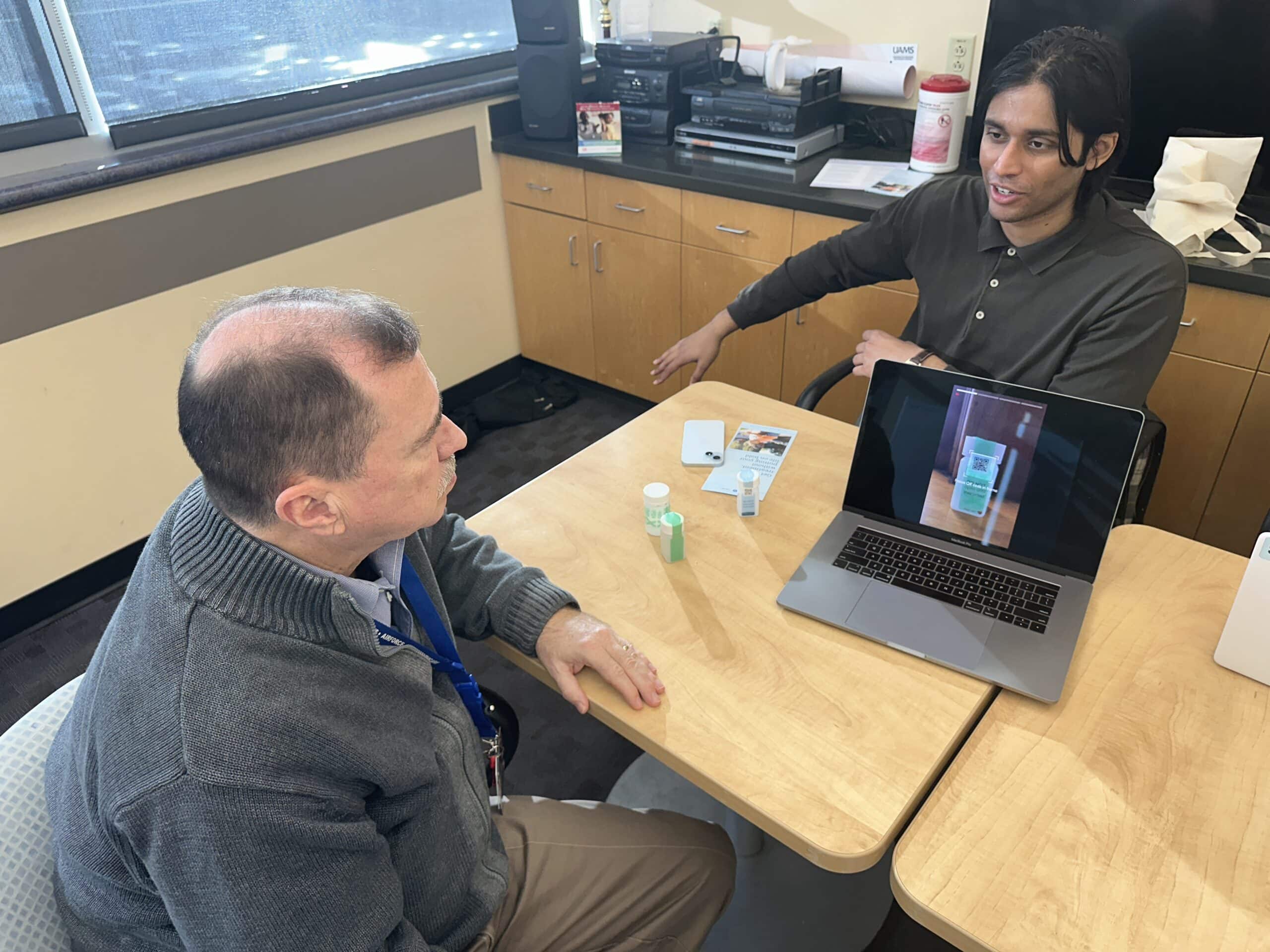UAMS Center for Addiction Services Employs New Technology to Treat Opioid Addiction
| LITTLE ROCK — The drug methadone, commonly used to treat opioid addiction by detoxification and maintenance, requires daily visits to an outpatient clinic as well as countless counseling sessions and drug screenings. The intensive treatment also comes with a sense of stigma that can be more difficult to deal with than the actual therapy.
Recognizing the barrier that daily visits can pose, the University of Arkansas for Medical Sciences (UAMS) Center for Addiction Services and Treatment is rolling out a hybrid care program designed to better meet the needs of its patients and improve their chances of overcoming their dependence on opioids.
The Center for Addiction Services (CAST), per federal and state regulations, requires patients to make five or six daily trips each week to the clinic to receive their methadone and to undergo two hours of group therapy and another hour of counseling each week. Working with Sonara Health, CAST is now able to allow eligible patients the opportunity to record videos of themselves taking their medication.
The videos are uploaded to the company’s secure repository, where the CAST care team will review them.
“Many of our patients live far from Little Rock and have jobs. Coming here every day for treatment can be a hardship and disruptive to their lives,” said Michael Mancino, M.D., CAST’s medical director. “With Sonara, they only have to come in one day a week or less as opposed to five or six days per week.”
Subsidized by a federal grant from the Substance Abuse and Mental Health Services Administration (SAMHSA), the new hybrid approach to treatment also will hopefully eliminate some of the negative stereotypes associated with using methadone to treat opioid use disorder and increase the number of patients with an opioid addiction who seek treatment, said Mancino.
“This will help people who may have multiple jobs or children they have to care for, it will make their schedules a lot easier,” said Mancino. “They will get the same level of care we’ve always provided; it will just be easier to access now.”
The new hybrid program reduces the stigma associated with opioid treatment programs (OTP) by making treatment less visible, more personalized and more manageable for patients, according to Phil Beck, vice president of Growth for Sonara Health.
“Traditionally, patients are required to visit the treatment center daily, which can be impractical and discourages many from seeking help. These daily visits often result in visible queues outside and around centers, leading to misunderstandings and negative perceptions in the community that OTPs attract ‘drug activity’ rather than providing essential medical care,” said Beck. “This tailored approach reduces the need for daily visits, decreasing the visibility of treatment centers, enhancing patient privacy and minimizing public misconceptions.”
Patients who are determined by Mancino to be clinically stable will be eligible for the new program. Patients who are not clinically stable will continue to receive treatment in the traditional manner through the clinic.
UAMS is the state’s only health sciences university, with colleges of Medicine, Nursing, Pharmacy, Health Professions and Public Health; a graduate school; a hospital; a main campus in Little Rock; a Northwest Arkansas regional campus in Fayetteville; a statewide network of regional campuses; and eight institutes: the Winthrop P. Rockefeller Cancer Institute, Jackson T. Stephens Spine & Neurosciences Institute, Harvey & Bernice Jones Eye Institute, Psychiatric Research Institute, Donald W. Reynolds Institute on Aging, Translational Research Institute, Institute for Digital Health & Innovation and the Institute for Community Health Innovation. UAMS includes UAMS Health, a statewide health system that encompasses all of UAMS’ clinical enterprise. UAMS is the only adult Level 1 trauma center in the state. UAMS has 3,485 students, 915 medical residents and fellows, and seven dental residents. It is the state’s largest public employer with more than 11,000 employees, including 1,200 physicians who provide care to patients at UAMS, its regional campuses, Arkansas Children’s, the VA Medical Center and Baptist Health. Visit www.uams.edu or uamshealth.com. Find us on Facebook, X (formerly Twitter), YouTube or Instagram.###
